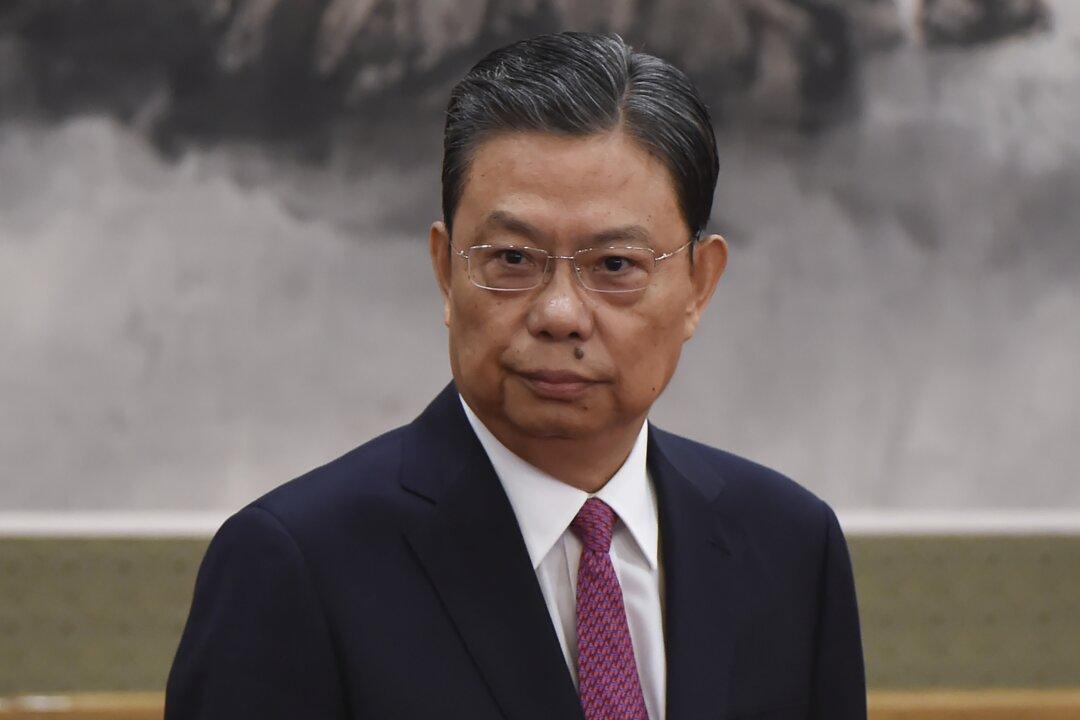As the Chinese economy grapples with financial risks and slowing growth, the Chinese Communist Party (CCP) recently announced that it would tighten anti-corruption efforts against the state-owned finance sector.
That includes state-owned banks, investment firms, asset management firms, and any firms or conglomerates for which the state owns a majority of shares, such as China Life, the country’s largest life insurer.
On Nov. 2, Zhao Leji, head of the Party’s internal anti-corruption agency, the Central Commission for Discipline Inspection (CCDI), spoke at an internal meeting for anti-corruption personnel, where he announced that special “inspection teams” will be dispatched to state-owned companies in the finance sector in an effort to fight corruption, according to state-run media Xinhua.
Beijing Youth Daily, another state-run media, reported that Zhao said sending the inspection teams will be akin to “installing surveillance cameras” on the dozens of finance corporations owned by the state.
This news is a hint that the finance sector will soon face sackings and purges.
Since coming to power in 2012, Chinese leader Xi Jinping has directed a sweeping anti-corruption campaign to rid the Party of misbehaving officials.The finance sector had previously seen several senior officials getting ensnared, including Yao Zhongmin, vice president and deputy chief of the Party committee at the China Development Bank, who was found guilty of taking bribes totaling 36 million yuan ($5.3 million) by a Chinese court in August last year. He was sentenced to 14 years in prison.
In April, the trial opened for the bribery case of Wang Yincheng, former president of the state-owned People’s Insurance Company of China. The CCDI had accused him of various misdeeds, such as pursuing extravagant pleasures, using public funds to pay for his personal travel expenses, and changing his business trip schedules in order to play golf.
The CCDI also found that Wang received bribes in exchange for helping individuals and companies with project contracts, giving staff promotions, and hiring their children at the company.
And back in November, the Party had shown signs that the finance sector would be the next focus of the anti-corruption campaign as the CCDI appointed a new director to monitor corruption in China’s central bank, the People’s Bank of China, and at two state regulators, the Banking Regulatory Commission and Insurance Regulatory Commission.
Zhao’s announcement also comes as China has sought to curb financial risks. The central authorities have tried deleveraging; putting a hold on rising property prices to prevent the housing bubble from bursting; and getting state-owned asset management companies to absorb distressed debt.
The Chinese regime itself knows that the country’s economy is in trouble as the debt crisis balloons. On the same day as Zhao’s announcement, the central bank released its “financial stability” report for 2018, warning that growing household debt was a worrying trend—though the report tried to downplay the risks by concluding that the overall financial system did not carry “systematic risks.”
China’s household debt-to-GDP ratio reached a record high of 49.1 percent in 2017, according to a report on global wealth published by German insurance giant Allianz in September.





